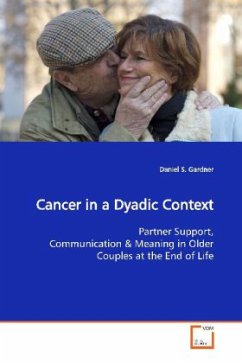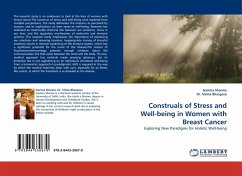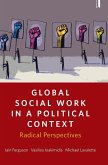Older adults rarely face the stress of living with
advanced cancer in a social vacuum. Partners and
spouses are
profoundly affected by, and contribute to the
patient s experience
with illness. Partners provide the bulk of emotional
and physical
support and share in medical decision-making, treatment
adherence and psychosocial adjustment.
Psycho-oncology research
primarily emphasizes the individual responses of patients
and partners to
illness. Relatively little empirical attention has
been paid to the
partner relationship, and less to older couples. This
study examined
the subjective and intersubjective experiences, and
communication and support processes of 35 older
couples living
with
advanced cancer. Data collected through focused,
semi-structured
interviews with patients and partners recruited from
an urban cancer
center were analyzed within individual, micro-social
and macro-
social contexts, and systematically coded using
grounded theory
methods. Study findings suggest couples struggle to
integrate
often-conflicting individual and dyadic discourses
across three
contextual domains: dyadic structure and care; dyadic
communication; and dyadic meaning-making.
advanced cancer in a social vacuum. Partners and
spouses are
profoundly affected by, and contribute to the
patient s experience
with illness. Partners provide the bulk of emotional
and physical
support and share in medical decision-making, treatment
adherence and psychosocial adjustment.
Psycho-oncology research
primarily emphasizes the individual responses of patients
and partners to
illness. Relatively little empirical attention has
been paid to the
partner relationship, and less to older couples. This
study examined
the subjective and intersubjective experiences, and
communication and support processes of 35 older
couples living
with
advanced cancer. Data collected through focused,
semi-structured
interviews with patients and partners recruited from
an urban cancer
center were analyzed within individual, micro-social
and macro-
social contexts, and systematically coded using
grounded theory
methods. Study findings suggest couples struggle to
integrate
often-conflicting individual and dyadic discourses
across three
contextual domains: dyadic structure and care; dyadic
communication; and dyadic meaning-making.







